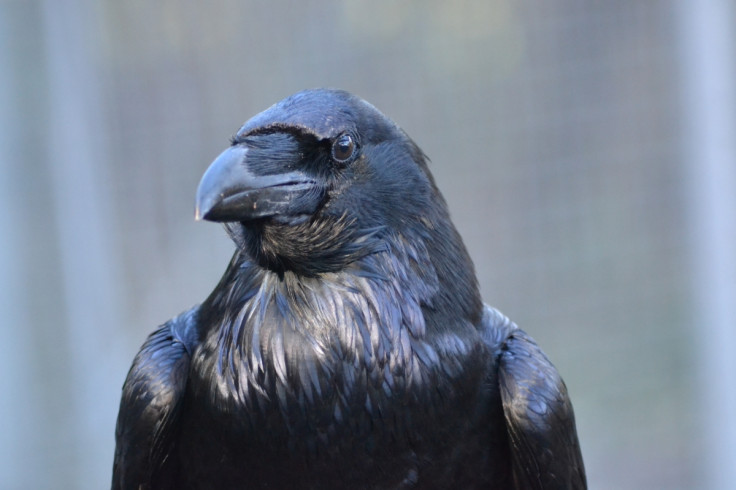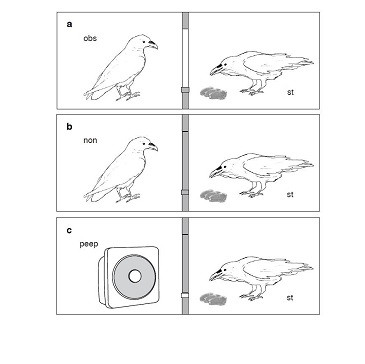Theory of Mind: Ravens know when they are being watched

Ravens appear to understand when they are being watched by other birds, shedding light on the Theory of Mind – the ability to attribute mental states to others. A team of scientists from the University of Vienna found ravens can work out what a competitor might be able to see, even if they could not see the other raven.
Published in the journal Nature, the team observed ravens hiding food when they could not see a competitor. An individual raven was placed in a study area that was enclosed other than a small peephole. The team then presented the possibility they were being observed by playing a recorded sound of another raven on the other side of the peep hole.
When the sound was played, the raven hid its food in a way that would suggest it was aware of the possibility of another raven watching it from the peephole. The same behaviour was observed when the raven was provided full visual access to a competitor bird. However, they did not show the same concerns when the peephole was closed, even if the recording was playing.

The Theory of Mind is our ability to understand that other humans have minds like our own – our ability to see and think. Research into the theory normally involves chimpanzees and species tied with humans, but often rely on the animals' ability to see the other animal – providing 'gaze clues'. This has led to the argument that other animals cannot necessarily think abstractly because they could be relying on these visual cues, rather than understanding what the other animal sees.
The raven study avoided this because it could not see the other bird, therefore was relying on the idea that its competitor could potentially look through the peephole and see where the food was being hidden.
"We show that ravens ... can generalise from their own experience using the peephole as a pilferer and predict that audible competitors could potentially see their caches (through the peephole)," they wrote. "Consequently, we argue that they represent 'seeing' in a way that cannot be reduced to the tracking of gaze cues."
They said that while further experiments will be required to work out the limits of ravens and other animals, the study "provides strong evidence against the sceptical hypothesis that the social cognition of non-human animals is limited to behaviour-reading".
Study author Thomas Bugnyar said: "It could change our perception of human uniqueness, that we share some of that ability not just with chimpanzees and closely related species but also with a very different species ... Finding that Theory of Mind is present in birds would require us to give up a popular story as to what makes humans special. But completing this evolutionary and developmental picture will bring us much closer to figuring out what's really unique about the human mind."
© Copyright IBTimes 2025. All rights reserved.






















